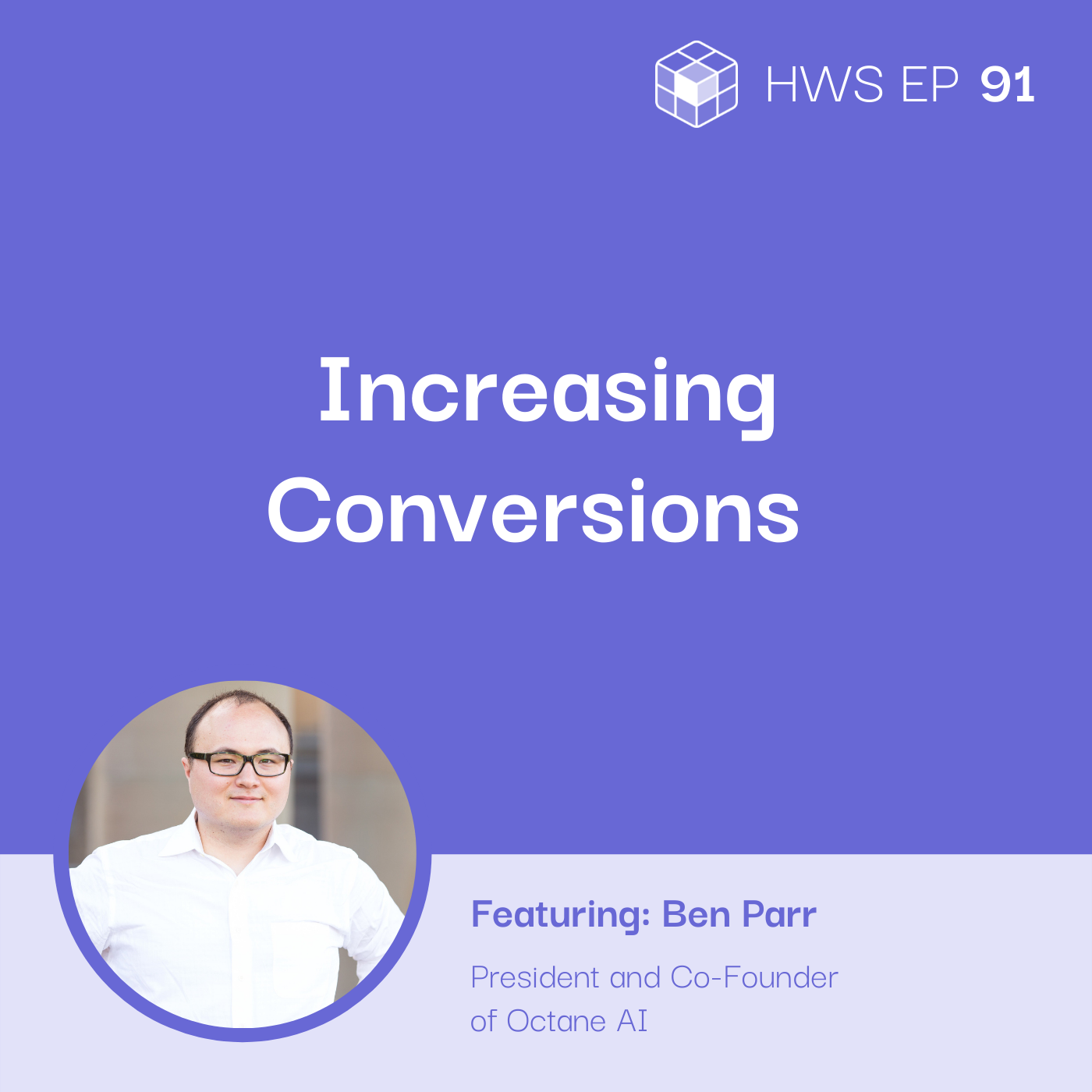Listen on:
Table of Contents:
Problem: How do you increase conversion amidst the new cookies policies of Google and Apple?
In January 2020, Google announced that by the end of 2022 Chrome would no longer support third-party cookies. Then, Apple announced in April this year that it would introduce App Tracking Transparency with iOS14.5. In cross-app tracking, advertisers can target ads based on the behavior of another mobile app — and that clearly matters a lot to marketers who use them for audience creation and conversion tracking. With these things in mind, how do you increase conversion amidst the new cookies policies of Google and Apple?
The recent changes with iOS, the new privacy rules, and what we would call the cookie apocalypse— which is a great thing eventually for people and individuals to have more control over the data that they share. It’s an immediate hit to brands. I’ve been having a conversation with a lot of our customers, with many merchants and stores and other people who’ve relied on ads is a big part of the way they bring people in. It’s a huge problem. They have relied on third-party data that they borrow from places like Facebook. Now, you can see it’s ideal eventually that you own that data. So, there’s a solution to that. To increase conversion rates in the process, it is actually better to have that data and collect that data.
Zero Party Data: Get the Information Directly from the Customer
Octane AI founder and president, Ben Parr, says getting information directly from customers is the only way to overcome these changes. This technique is what they call zero-party data, and this applies to everything that they do at Octane. Brands should ensure an engaging customer journey to encourage customers to share information. He gave three tips on how to do this:
- Use quizzes and conversational popups on your website to find out your customer’s preferences.
- Integrate data in other platforms like Facebook Messenger or in your live chats. Leverage this at every point in their purchase journey.
- Create segmentation when you have ample data sets.
When you successfully pull this off, you’ll be able to create personalized experiences throughout your customer’s buying journey.
Tip #1: Understand your customer preferences with quizzes and pop-ups
Quizzes are a fun way to understand what your audience wants. Ask them, for instance, how they like to take their medicine. Provide them with options they can choose easily, such as pills or capsules. They can freely share information because it feels like a conversation. Conversational Pop-ups are interactive experiences that allow you to collect information such as email addresses, mobile numbers, and Messenger messages. As soon as they start window shopping, you can encourage them to tell you what they are interested in. With this feature, you can personalize the incentives and recommendations they receive.
That will also allow you to go and collect this data, just like you would with a quiz. So to give you quick context, pop-ups for the last 10 years are the same. Here’s a pop-up I put in an email address, I get a discount. Most people ignore them. Conversion rates are not all that high, but they’re a crucial part of a lot of e-commerce websites. But why doesn’t the pop-up actually ask a question or learn something that has even changed in the last 10 years? So, the conversational pop-up section uses quiz technology. We’ve built to put it inside a pop-up so that you can ask a single question.
Tip #2: Leverage these Data; Integrate into Platforms like Messenger and SMS
The way we communicate has changed. Live chat agents can guide customers through their shopping journey using real-time marketing on Facebook Messenger and SMS. When they’re equipped with the customer’s preferences, the buying process tends to be shorter. You can increase conversion rates by engaging your customers at critical points of their journey and sending them reminders like abandoned cart messages, order confirmations, win-back campaigns, and post-purchase surveys. Post-purchase may be overlooked but, this is also important for repeat business.
There are lots of interesting things you can go and do. We’re just allowing you to collect that data and then leverage that data. So be able to leverage it on our platform, like our Facebook Messenger product, for example. Or into using something like Zapier to, leverage that data in the other tools that you use.
Tip # 3: Organize Your Data and Create Segments
Once you start collecting data, you’ll be surprised by the amount of information you’ll be able to get from your consumers and how much you’ll get to know them. To understand where they are in their shopping journey, organize these data into smaller groups. By doing this, your emails and SMS can be more intentional. You can send them incentives, discounts, and reminders depending on their last interaction with your online store.
You just need to be collecting those data. And then, once you’ve collected the data, structure it. So that you can go and leverage it. For example, sending it into your Klayvio. If you use Klaviyo, you can send more targeted emails and more segmented flows from the start. Or, sending more segmented SMS. Or, sending that information to a tool that would help you personalize the product recommendations on the website.
Resources About E-commerce, Capturing Customer Attention, and Fund Raising:
- Thinking Fast and Slow, by Daniel Kahneman
- Captivology: The Science of Capturing People’s Attention by Ben Parr
- Venture Deals: Be Smarter Than Your Lawyer and Venture Capitalist, by Brad Felds
Why Personalization and Data Collection is Crucial: Send them much more personalized emails or results, which will both be much better for the customer and have a much higher conversion rate. And, frankly, it’s what they’re looking for and expecting from the brands. But you can’t do that if you don’t have the data. So step one is to collect the data.
This interview is part of the How We Solve podcast. To hear more from industry experts who are solving everyday business problems, check us out on Spotify, Apple Podcasts, and on our website.
About the guest

Ben Parr
Ben Parr is President and Co-Founder of Octane AI, the all-in-one platform for engaging quizzes, data collection, and personalized Facebook Messenger and SMS automation. His team helped thousands of Shopify and Shopify Plus merchants to connect, convert, and retain customers by personalizing the customer journey and shopping experience. He is also the author of the best-selling book Captivology: The Science of Capturing People's Attention, named the top marketing book of 2015 by Strategy+Business Magazine.
How people can people reach the guest:
Website: Octane AI | Ben Parr’s Official Website
LinkedIn: Ben Parr’s LinkedIn | Octane AI LinkedIn
Facebook: Ben Parr on Facebook | Octane AI on Facebook
Instagram: Octane AI on IG
Youtube: Octane AI on YT
Listen on:
